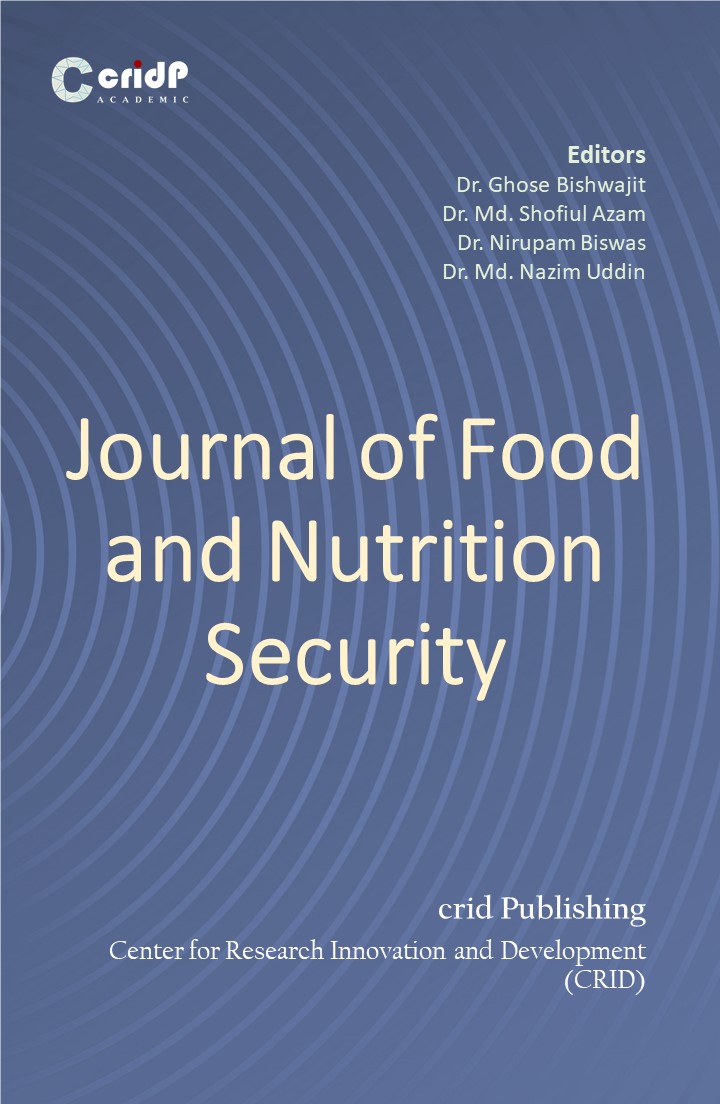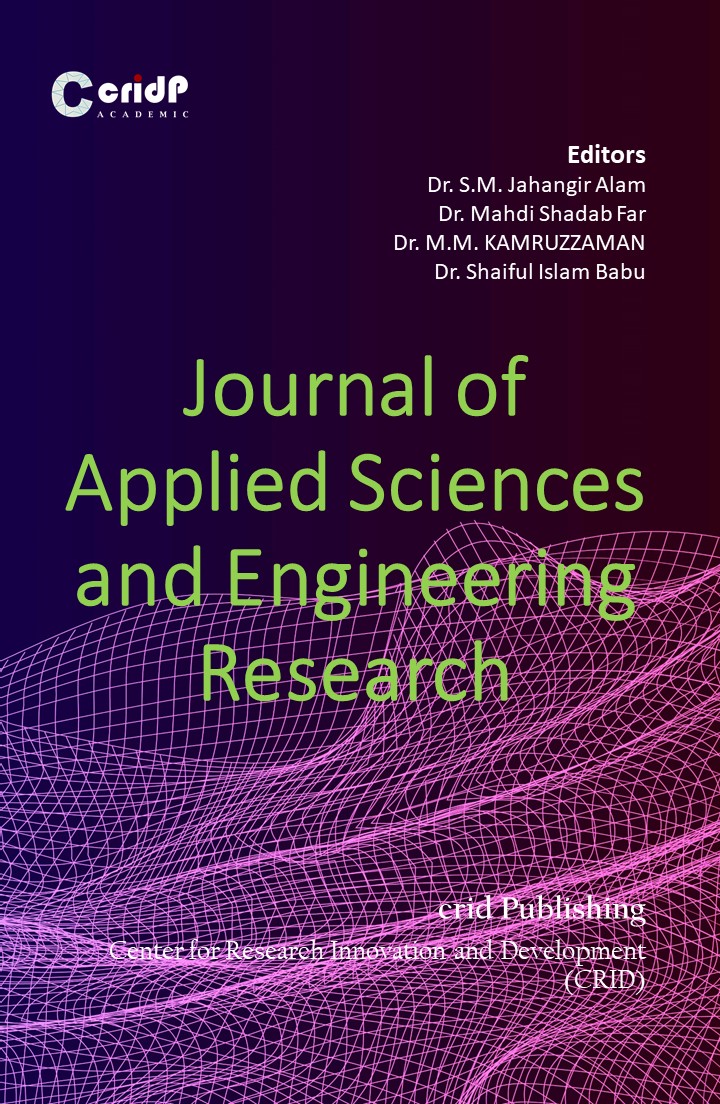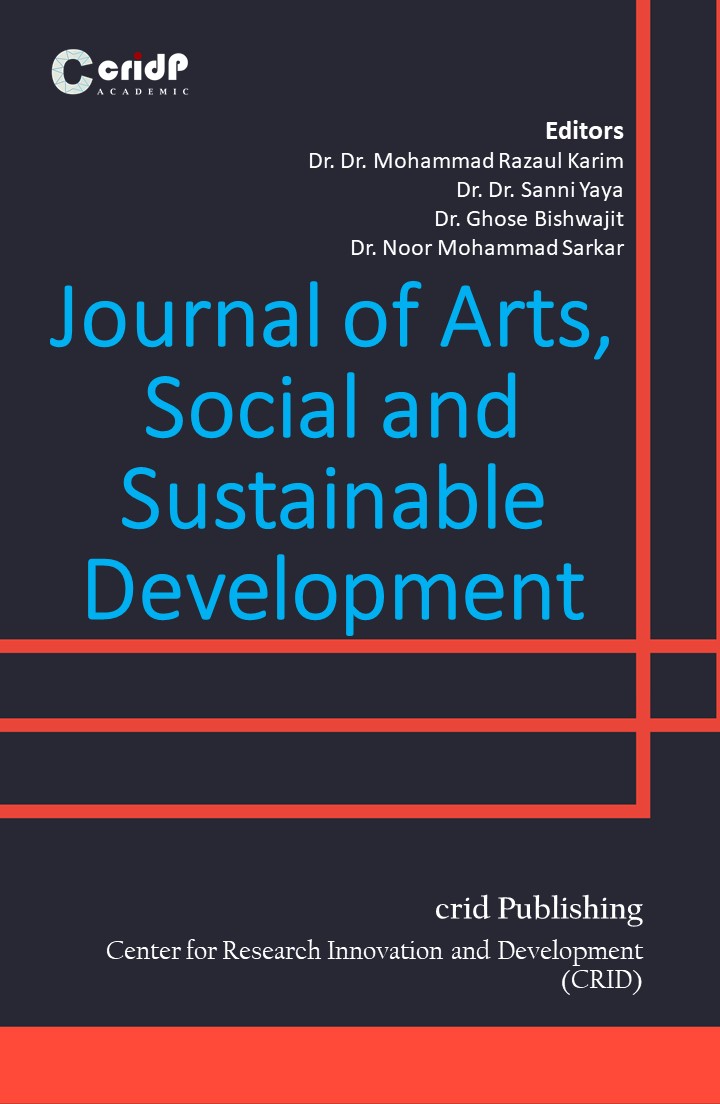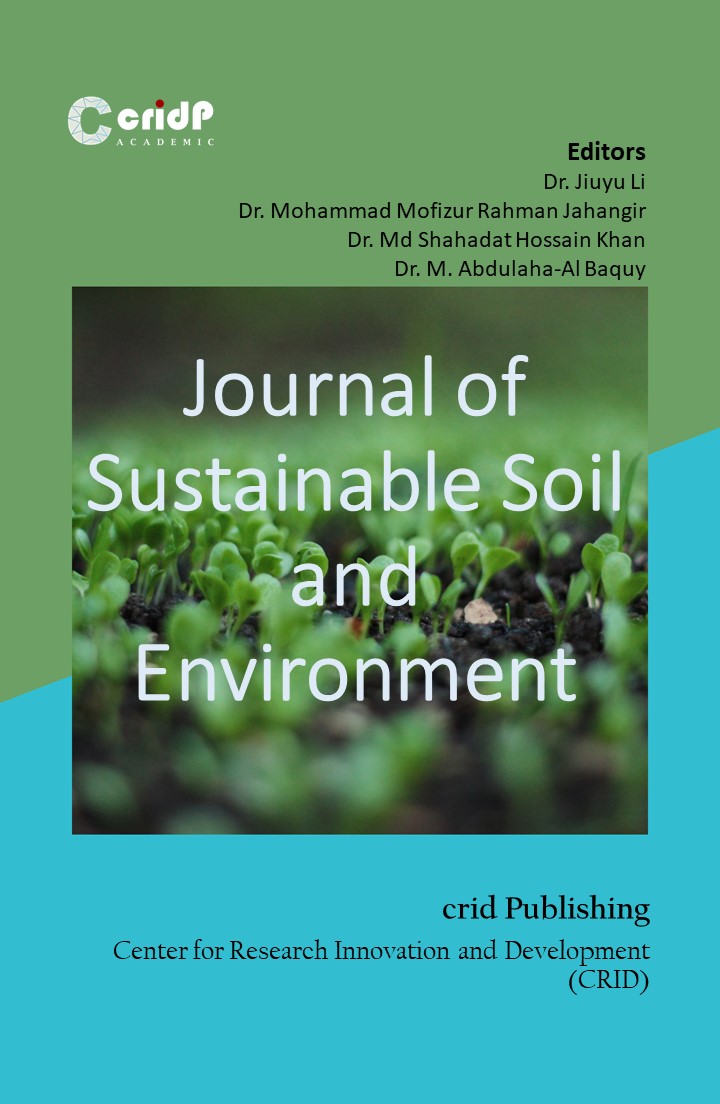The cridP Editorial Process
cridP operates a rigorous peer-review process. In most cases this is a single-blind assessment with at least two independent reviewers, followed by a final acceptance/rejection decision by the Editor-in-Chief, or another academic editor approved by the Editor-in-Chief. The Editor-in-Chief is responsible for the academic quality of the publication process, including acceptance decisions, approval of Guest Editors and special issue topics, and new Editorial Board members.
A summary of the editorial process is given in the flowchart below. The following provides notes on each step.
Pre-check
Immediately after submission, this check is initially carried out by the managing editor to assess:
Suitability of the manuscript to the journal/section/special issue;
Qualification and background of authors;
Reject obviously poor manuscripts.
The Academic Editor, i.e., the Editor-in-Chief in the case of regular submissions, or the Guest Editor in the case of Special Issue submissions, or an Editorial Board Member in case of a conflict of interest, will be notified of the submission and invited to check and recommend reviewers.
Peer-review
The process is single-blind for most journals, meaning that the author does not know the identity of the reviewer, but the reviewer knows the identity of the author. Some journals operate double-blind peer review.
At least two review reports are collected for each submitted article. Suggestions of reviewers can be made by the academic editor during pre-check. Alternatively, cridP editorial staff will use qualified Editorial Board Members, qualified reviewers from our database, or new reviewers identified by web searches for related articles.
The following checks are applied to all reviewers:
That they hold no conflicts of interest with the authors, including if they have published together in the last five years;
That they hold a PhD (exceptions are made in some fields, e.g. medicine);
They must have recent publications in the field of the submitted paper;
They have not recently been invited to review a manuscript for any cridP journal.
To assist academic editors, cridP staff handle all communication with reviewers, authors, and the external editor; however, Academic Editors can check the status of manuscripts and the identity of reviewers at any time. Reviewers are given 7-10 days to write their review. For the review of a revised manuscript, reviewers are asked to provide their report within three days. In both cases, extensions can be granted on request.
A paper can only be accepted for publication by an academic editor. Employed cridP staff can only reject papers: it would create a clear conflict of interest if they were permitted to accept a paper as their salary is paid for by the APC of accepted articles.
cridP journals operate an open peer review option, meaning that the authors have the option to publish the review reports and author responses with the published paper (often referred to as open reports). In addition, reviewers may choose to sign their reports if the review is published, in which case the reviewer name appears on the review report (referred to as open identity). The default option is for reviewers to remain anonymous and for reports not to be published, reviewers and authors respectively must opt into this option. If an article is rejected no details will be published. Open peer review has the benefit of increasing transparency about the review process and providing further information about the paper for interested readers and we encourage authors to choose open review. Further background can be found on our blog.
Authors can recommend potential reviewers. Journal editors will check to make sure there are no conflict of interests before contacting those reviewers, and will not consider those with competing interests. Reviewers are asked to declare any conflicts of interest. Authors can also enter the names of potential peer reviewers they wish to exclude from consideration in the peer review of their manuscript, during the initial submission progress. The editorial team will respect these requests so long as this does not interfere with the objective and thorough assessment of the submission.
Double-Blind Peer Review Policy and Guidelines
CRID journals uses double-blind review, which means that both the reviewer and author identities are concealed from the reviewers, and vice versa, throughout the review process.
To facilitate this, authors need to ensure that their manuscripts are prepared in a way that does not give away their identity. To help with this preparation please ensure the following when submitting to any journal of CRID Publishing
- Submit the Title Page containing the Authors details and Blinded Manuscript with no author details as 2 separate files.
Information to help prepare the Title Page
This should include the title, authors’ names and affiliations, and a complete address for the corresponding author including telephone and e-mail address.
Information to help prepare the Blinded Manuscript
Besides the obvious need to remove names and affiliations under the title within the manuscript, there are other steps that need to be taken to ensure the manuscript is correctly prepared for double-blind peer review.
To assist with this process the key items that need to be observed are as follows:
- Use the third person to refer to work the Authors have previously undertaken, e.g. replace any phrases like “as we have shown before” with “… has been shown before [Anonymous, 2007]”.
- Make sure figures do not contain any affiliation related identifier
- Do not eliminate essential self-references or other references but limit self-references only to papers that are relevant for those reviewing the submitted paper.
- Cite papers published by the Author in the text as follows: ‘[Anonymous, 2007]’.
- For blinding in the reference list: ‘[Anonymous 2007] Details omitted for double-blind reviewing.’
- Remove references to funding sources
- Do not include acknowledgments
- Remove any identifying information, including author names, from file names and ensure document properties are also anonymized.
Editor Decision
Acceptance decisions on manuscripts, after peer review, are made by an academic editor, either the Editor-in-Chief, a Guest Editor, or another suitable Editorial Board member. When making an editorial decision, we expect that the academic editor checks the following:
The suitability of selected reviewers;
Adequacy of reviewer comments and author response;
Overall scientific quality of the paper.
The editor can select from: accept, reject, ask author for revision, ask for an additional reviewer.
If there is any suspicion that a paper may contain plagiarism, the editorial office will check using the industry standard iThenticate software.
Reviewers make recommendations, and Editors-in-Chief are free to disagree with their views. If they do so, they should justify their decision, for the benefit of the authors.
Editorial independence is extremely important and cridP does not interfere with editorial decisions. In particular, no paper is published without the agreement of an academic editor and cridP staff do not advise academic editors about accepting or rejecting articles.
cridP staff or editorial board members (including Editors-in-Chief) are not involved in the processing their own academic work. Their submissions are assigned to at least two independent outside reviewers. Decisions are made by other editorial board members who do not have a conflict of interest with the author.
Revision
In cases where only minor revisions are recommended, the author is usually requested to revise the paper before referring to the external editor. Articles may or may not be sent to reviewers after author revision, dependent on whether the reviewer requested to see the revised version and the wishes of the Academic editor. Apart from in exceptional circumstances, we allow a maximum of two rounds of major revision per manuscript.
The cridP editorial process.
Production
cridP carries out production on all manuscripts, including language editing, copy editing and conversion to XML. Language editing is carried out by professional English editing staff. In the small number of cases where extensive editing or formatting is required, we charge authors an additional fee (with authors’ prior approval). The authors are also free to use other English editing service, or consult a native English-speaking colleague—the latter being our preferred option.
Publication Ethics
cridP is a member of the Committee on Publication Ethics (COPE), including following its Principles of Transparency and Best Practice in Scholarly Publishing. Our journals follow COPE’s procedures for dealing with potentially unethical behaviour by authors, reviewers or editors. All cridP editorial staff are trained in how to detect and respond to ethical problems.
Details on ethical considerations for submitting papers can be found in the instructions for authors of journals (see here, for example).cridP has a published policy on Corrections and Retractions.
Ethical issues raised by readers of the journal will be investigated by the editorial office following procedures recommended by COPE. Disputes on the validity of research reported in published papers can be settled by the editorial board. For disputes around authorship, data ownership, author misconduct, etc., where necessary we will refer to external organizations such as a university ethics committee. Authors are asked to respond to any substantiated allegations made against them.
Authorship Disputes
To manage authorship disputes we follow COPE guidelines, particularly How to spot authorship problems [PDF]. Typically, if all authors agree, the authorship can be updated via a Correction. If not, we require an authoritative statement from the authors’ institution(s) about who qualifies for authorship.
Publishing Standards and Guidelines
cridP follow the following guidelines and standards for its journals:
ICMJE: Medically related cridP journals follow the recommendations of the International Committee of Medical Journal Editors. The guidelines comprehensively cover all aspects of editing, from how the journal is managed to details about peer review and handling complaints. The majority of the recommendations are not specific to medical journals and are followed by all cridP journals.
The CONSORT statement covers reporting of randomized, controlled trials. We encourage authors to verify their work against the checklist and flow diagram and upload them with their submission.
TOP covers transparency and openness in the reporting of research. Our journals aim to be at level 1 or 2 for all aspects of TOP. Specific requirements vary between journals and can be requested from the editorial office.
PRISMA covers systematic reviews and meta-analyses. Authors are recommended to complete the checklist and flow diagram and include it with their submission.
ARRIVE contains guidelines for reporting in vivo experiments. Authors are recommended to verify their work against the checklist and include it with their submission.
Compliance with the standards and guidelines above will be taken into account during the final decision and any discrepancies should be clearly explained by the authors. We recommend that authors highlight relevant guidelines in their cover letter.
Submit your any query to the following email of the individual journal’s contact;
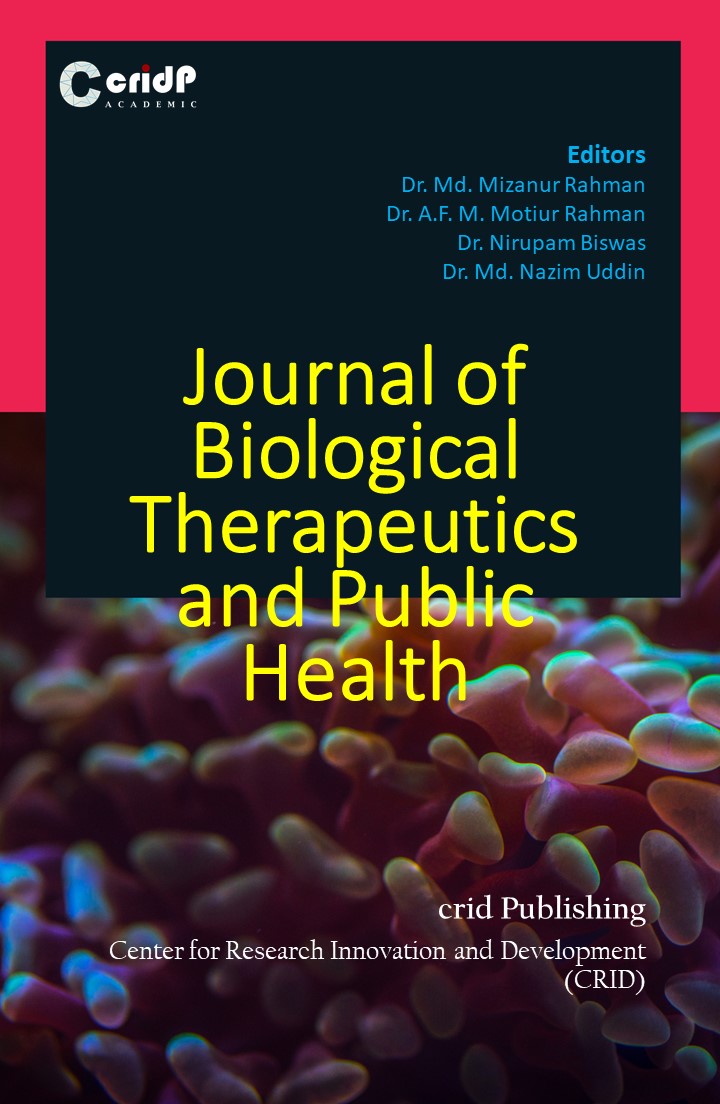
Journal of Biological Therapeutics and Public Health
Email: submit.journal@cridglobal.org
Email: editor.btph@journal.cridglobal.org
Email: info@journal.cridglobal.org
Email: contact@cridglobal.org
Center for Research Innovation and development (CRID)
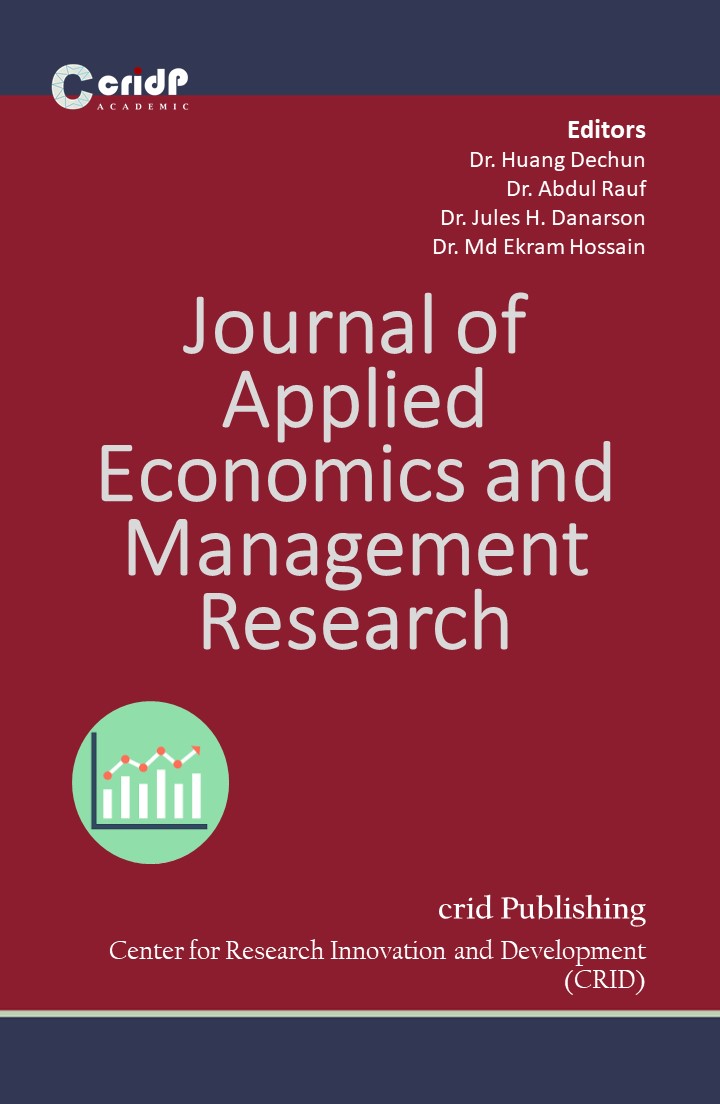
Journal of Applied Economics and Management Research
Email: submit.journal@cridglobal.org
Email: editor.aemr@journal.cridglobal.org
Email: info@journal.cridglobal.org
Email: contact@cridglobal.org
Center for Research Innovation and development (CRID)
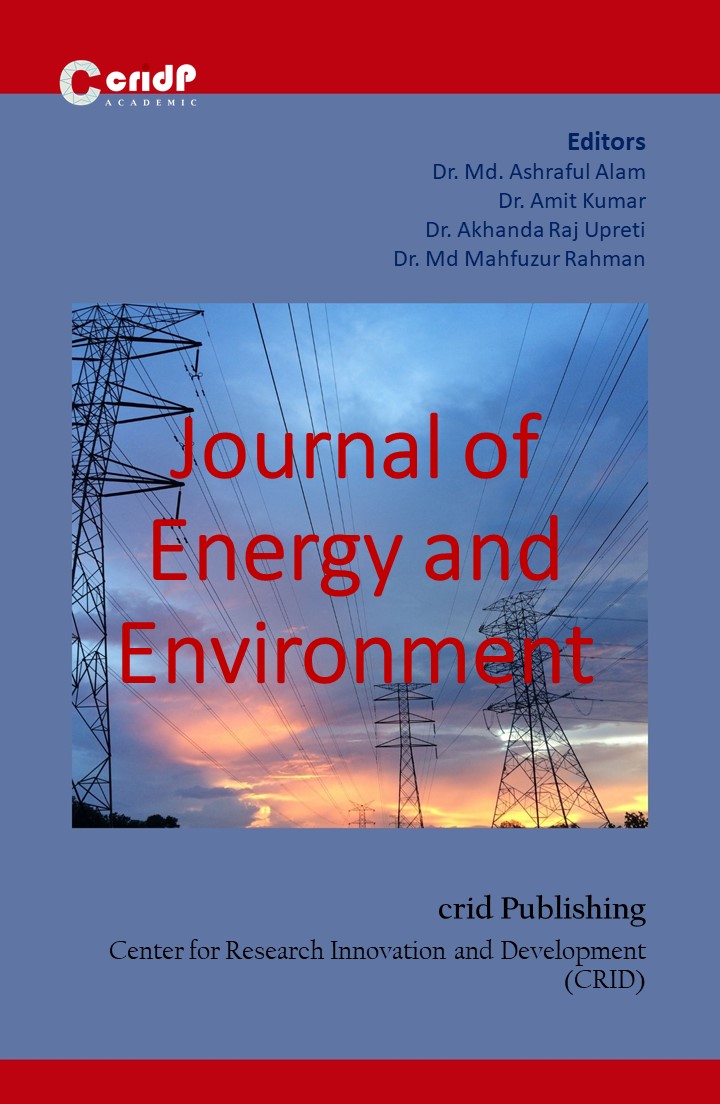
Journal of Energy and Environment
Email: submit.journal@cridglobal.org
Email: editor.ee@journal.cridglobal.org
Email: info@journal.cridglobal.org
Email: contact@cridglobal.org
Center for Research Innovation and development (CRID)
Journal of Food and Nutrition Security
Email: submit.journal@cridglobal.org
Email: editor.fns@journal.cridglobal.org
Email: info@journal.cridglobal.org
Email: contact@cridglobal.org
Center for Research Innovation and development (CRID)
Journal of Applied Sciences and Engineering Research
Email: submit.journal@cridglobal.org
Email: editor.aser@journal.cridglobal.org
Email: info@journal.cridglobal.org
Email: contact@cridglobal.org
Center for Research Innovation and development (CRID)
Journal of Arts, Social and Sustainable Development
Email: submit.journal@cridglobal.org
Email: editor.assd@journal.cridglobal.org
Email: info@journal.cridglobal.org
Email: contact@cridglobal.org
Center for Research Innovation and development (CRID)
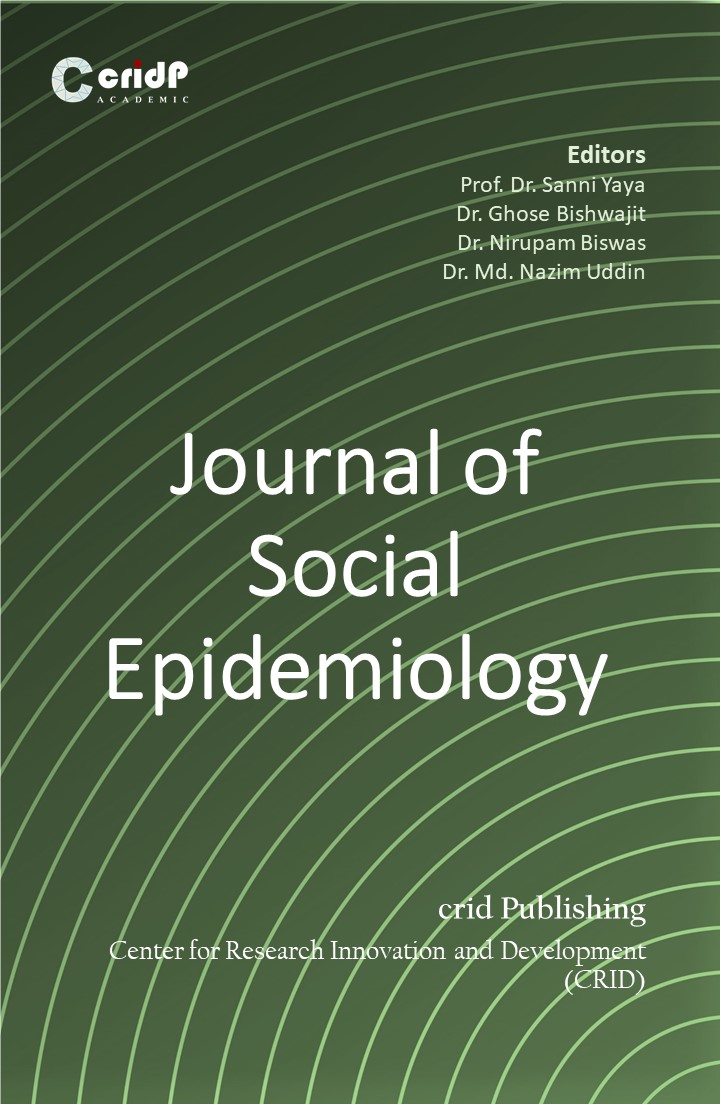
Journal of Social Epidemiology
Email: submit.journal@cridglobal.org
Email: editor.se@journal.cridglobal.org
Email: info@journal.cridglobal.org
Email: contact@cridglobal.org
Center for Research Innovation and development (CRID)
Journal of Sustainable Soil and Environment
Email: submit.journal@cridglobal.org
Email: editor.sse@journal.cridglobal.org
Email: info@journal.cridglobal.org
Email: contact@cridglobal.org
Center for Research Innovation and development (CRID)
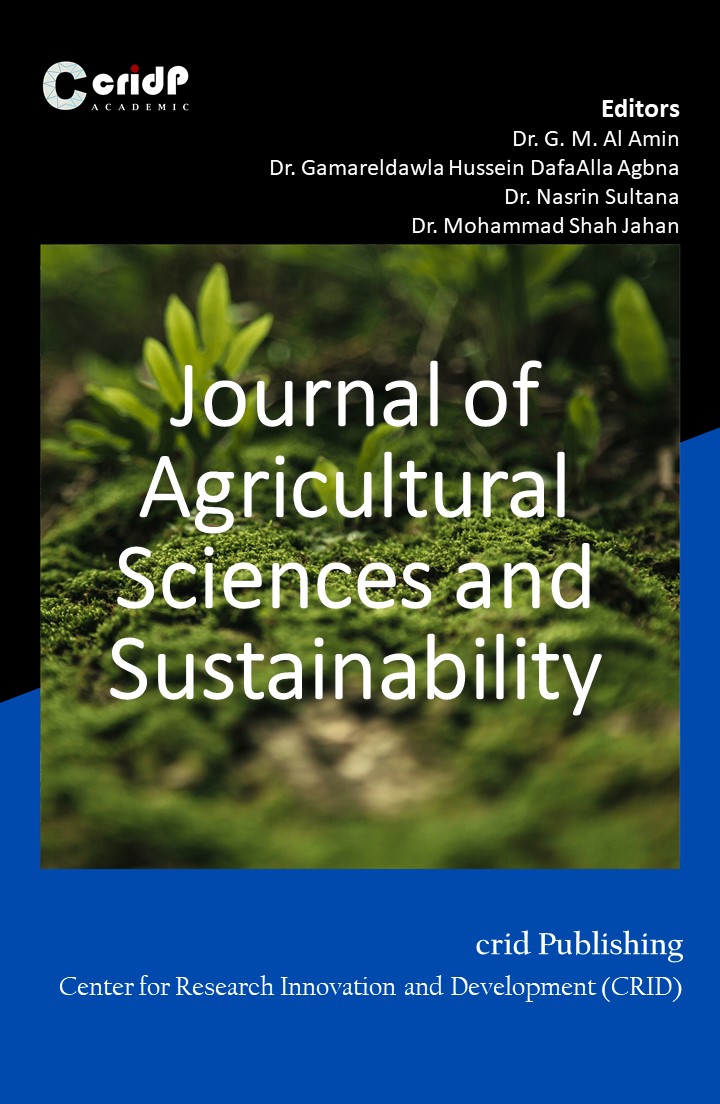
Journal of Agricultural Sciences and Sustainability
Email: submit.journal@cridglobal.org
Email: editor.sse@journal.cridglobal.org
Email: info@journal.cridglobal.org
Email: contact@cridglobal.org
Center for Research Innovation and development (CRID)

